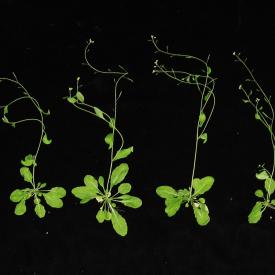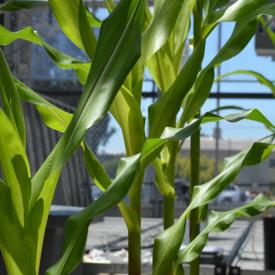The Harmon lab studies the plant circadian clock and the processes it affects. In plants, the circadian clock regulates central plant activities, such as growth and reproduction, by controlling gene expression and protein activity. We are investigating multiple facets of the circadian clock: signaling pathways, clock-regulated processes, the function of individual clock components, and the structure of the circadian clock in different plant species. Our experimental systems are the model plant Arabidopsis thaliana and the crop plants Zea mays and Sorghum bicolor. We anticipate that our studies will contribute to a more complete understanding of the function of the plant circadian clock and provide tools to apply this knowledge in crops.
Our lab is part of the Plant Gene Expression Center, which is a collaboration between the Agricultural Research Service of the US Department of Agriculture and the Plant and Microbial Biology Department of the University of California, Berkeley.




